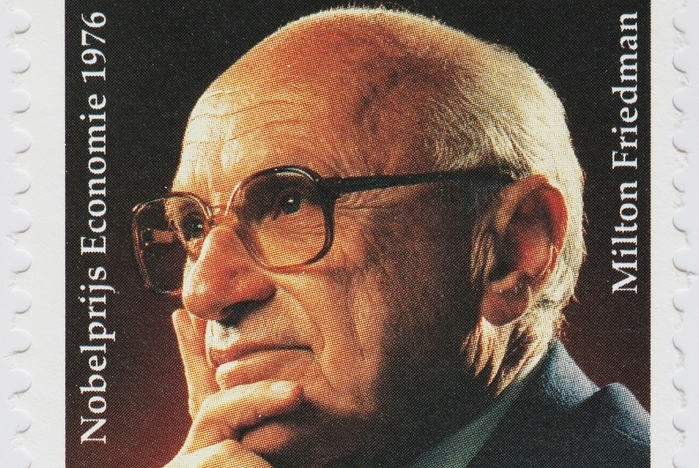ImpactAlpha, Dec. 23 – That our economic system and social contract is due for a reset is by now conventional wisdom. Still left to work out: how to drive that reset, and what comes next.
In our Capitalism Reimagined series produced in partnership with Omidyar Network, ImpactAlpha convened leaders and changemakers to take up the policies (Call No. 29), investment practices (Call No. 30) and movement-building (Call No. 35) that can shift power and share the wealth.
“We think the game is really about flipping that script, and that what we need to do is design markets to serve the well-being of society,” Omidyar Network’s Chris Jurgens said in an Agents of Impact podcast in June, “and to stop designing our society around serving the well being of markets.”
That effort touches virtually all of ImpactAlpha’s coverage areas, as our roundups and lookaheads to 2022 this week have shown. The Reconstruction, shorthand for the historic revival that is centering racial justice in the service of economic liberation for all, is addressing systemic change as well as systemic racism. Climate action requires not just climate finance, not just climate policy, not just climate protest, but all of the above.
New frameworks of risk and value are likewise propelling the bottom-up recovery from the COVID disruption that is reshaping access to capital for micro- and small businesses in emerging markets. And investments of catalytic capital that challenge expectations of risks and rewards offer previews of an economy and financial system that puts impact first.
Reimagining capitalism, that is, requires diverse leaders and organizations, representing particular constituencies and pursuing distinct strategies. In particular, it requires both outside-game and inside-game interventions to bring “heat on the street” to bear on policy and governance.
Systems change “requires us to launch not isolated interventions but much more coordinated interventions, and to do so simultaneously” says Theory of We’s Anna Muoio, who is leading the New Capitalism Project, a collaboration backed by Omidyar Network, the Ford and Rockefeller foundations and other funders to sketch the outlines of a new system and propose steps to get there.
One big idea: a “multi-movement engine” to bring together workers, customers and communities, as well as shareholders, in coordinated campaigns to hold corporations accountable, starting with major asset managers like BlackRock and Vanguard.
Majority Action’s Eli Kasagod-Staub, a participant in the New Capitalism Project, envisions activists and ordinary citizens pressuring asset managers through their alumni endowments, retirement accounts and religious groups to reset standards for responsible corporate behavior and fiduciary duty.
“There is enormous opportunity for truly intersectional campaigning because so many of the same activists and their organizations converge around the same massive problems and nodes of power,” says Kasargod Staub. “The concentrations of power actually create opportunity around intersectional campaigning that are unique and interesting – and to date, are untapped and unleveraged.”
Go deeper:
- “Call No. 35: Building a multi-movement engine to hold corporations accountable and reimagine”
- “Warriors and Lovers: Systemic change requires diversity in strategies, too”
- “Capitalism Reimagined: Seven dimensions of a better economic system”
Power shifts to workers
Elevating the power (and wages) of low-income workers is not typically at the top of investors’ agenda. But investors, along with capitalism itself, need a fairer distribution of productivity gains and economic growth, agreed participants on a July Capitalism Reimagined Call.
“Unless we have an economy that treats workers fairly it’s not going to help the investor class either,” said Leo Strine, who as chief justice of the Delaware Supreme Court until 2019 was effectively the top judge for U.S. corporations.
Strine advocated for expanding ESG investing to EESG to reflect the importance and value of employees. Practical reforms include expanding the mandate of board compensation committees to include equitable compensation across enterprises. Workforce committees can elevate worker voices even at non-union companies.
Curb cut effect. The emerging consensus for effective social policymaking: design interventions that repair and redress past injustices, particularly against Black people, and also provide broader benefits, such as building an inclusive green economy, supporting Black and Brown small businesses and entrepreneurs, and repairing Black farms. The wonky term for such an approach is targeted universalism. But PolicyLink’s Michael McAfee offers a more tangible example: sidewalk curb cuts created for wheelchairs that have proved a boon for travelers with roller bags, parents with strollers and delivery workers with carts.
“You can’t close the racial wealth gap without significant public policy that targets Black and brown people, when you have excluded them from the gains,” McAfee said on ImpactAlpha’s Impact Briefing podcast.
Confronting income inequality. Excessive income inequality is “a systemic risk that cannot simply be diversified away, The Investment Integration Project, or TIP, writes in Confronting Income Inequality.
Among nine ways investors can confront income inequality: Require standardized disclosure of labor-related data, implement fair labor and employee relations policies at portfolio companies, and advocate for boards to consider workers in compensation and benefits policies.
Go deeper:
- “Call No. 29: Capitalism reimagined for fair gainsharing and equitable prosperity”
- “Turning pledges into policies to invest in Black Americans and multi-racial prosperity”
- “Turning the renewed power of workers into a lasting pillar of stakeholder capitalism”
Stakeholders stake their claims
Agents of Impact “must proactively engage with the public sector to create an enabling environment for truly impactful business and investment decisions,” Fran Seegull wrote to kick off the U.S. Impact Investing Alliance’s collaboration with ImpactAlpha to sharpen the policy focus of the impact investing field.
Our new Policy Corner, sponsored by the Alliance, includes dozens of posts and op-eds tracking efforts to strengthen stakeholder capitalism and to renew community investing.
For example, a coalition of 60 impact-oriented businesses and investors, including the U.S. Impact Investing Alliance and B Lab, are pressing the White House to establish an initiative White House Initiative on Inclusive Economic Growth.
“We need a whole-of-government approach to truly tackle this equity problem,” Don Graves, deputy secretary of the U.S. Commerce Department, said at an interagency convening on equitable growth last month. “But we all know government can’t solve it alone. We need strong public-private partnerships with all of you to scale solutions.”
Among the policy efforts we’re covering:
- ESG rules. The Department of Labor is once again green-lighting managers of pension funds and retirement accounts to consider the environment, social justice, and corporate governance in their investment decisions. More.
- Procurement. Executive actions that direct federal agencies to increase their spending with underserved small businesses, including Black, Latino and other minority-owned businesses (more).
- Access to finance. Efforts to expand next-gen investments in coal communities and access to finance in Black, Native and rural communities (more).
- Reforming CRA. Efforts to promote consistent corporate reporting on key sustainability issues and reform the Community Reinvestment Act (more).
Go deeper:
- “Now is the time to accelerate investments in community development financial institutions,” by LISC’s Annie Donovan.
- “Racial equity planks in a new Community Reinvestment Act can expand the American Dream” by Genesis Companies’ Karim Hutson.
- “Global standards for sustainability accounting must be holistic and inclusive,” by GSG’s Krisztina Tora.
- “Congress must keep path clear for SEC to require corporate political spending disclosure,” by Public Citizen’s Rachel Curley.
We’re all universal owners now
When you own everything, you don’t want everything to go to hell. The emerging doctrine of “universal ownership” is upending traditional asset management and laying the foundation for more active stewardship to mitigate systemic risks to the economic system as a whole.
Universal ownership, once the province of huge pension, sovereign wealth and insurance funds, is increasingly relevant to any holders of diversified and passively managed index funds, including through 401(k) and college savings accounts. Volatility and value-destruction driven by climate, COVID, inequality and injustice are bigger threats to our financial security than any stock-picking mistakes. We’re all universal owners now.
One application of the approach is “beta stewardship,” an approach that goes beyond the identification of risks facing individual companies and beyond ESG strategies that promise investors “alpha” returns by parsing companies performance on environmental, social and governance factors.
As The Shareholder Commons’ Sara Murphy told ImpactAlpha, “It’s a misunderstanding of fiduciary duty when investors focus entirely on the outperformance of a single stock against a benchmark, instead of the health of the benchmark itself.”
Other investors are going beyond ESG to drive-world impact in public markets by investing in the energy transition and sustainable solutions, redefining “activist investor” to push climate laggards to take action, and tracking new metrics such as those that quantify a company’s environmental and social performance in monetary terms, or impact-weighted accounts.
Go deeper:











